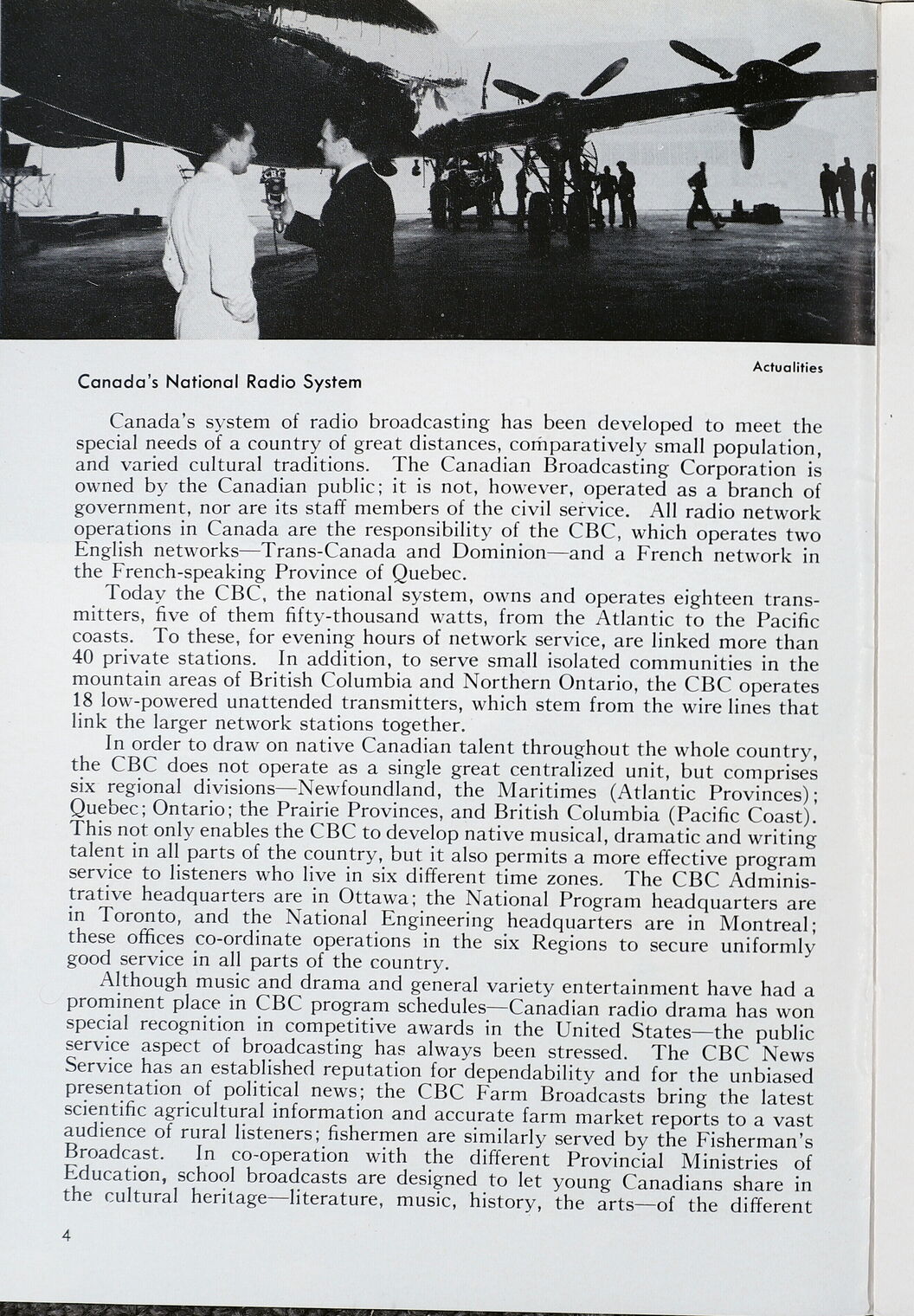
Full resolution (JPEG) - On this page / på denna sida - Canada’s National Radio System, by D. C. McArthur

<< prev. page << föreg. sida << >> nästa sida >> next page >>
Below is the raw OCR text
from the above scanned image.
Do you see an error? Proofread the page now!
Här nedan syns maskintolkade texten från faksimilbilden ovan.
Ser du något fel? Korrekturläs sidan nu!
This page has never been proofread. / Denna sida har aldrig korrekturlästs.
Actualities
Canada’s National Radio System
Canada’s system of radio broadcasting has been developed to meet the
special needs of a country of great distances, comparatively small population,
and varied cultural traditions. The Canadian Broadcasting Corporation is
owned by the Canadian public; it is not, however, operated as a branch of
government, nor are its staff members of the civil service. All radio network
operations in Canada are the responsibility of the CBC, which operates two
English networks—Trans-Canada and Dominion—and a French network in
the French-speaking Province of Quebec.
Today the CBC, the national system, owns and operates eighteen trans-
mitters, five of them fifty-thousand watts, from the Atlantic to the Pacific
coasts. To these, for evening hours of network service, are linked more than
40 private stations. In addition, to serve small isolated communities in the
mountain areas of British Columbia and Northern Ontario, the CBC operates
18 low-powered unattended transmitters, which stem from the wire lines that
link the larger network stations together.
In order to draw on native Canadian talent throughout the whole country,
the CBC does not operate as a single great centralized unit, but comprises
six regional divisions—Newfoundland, the Maritimes (Atlantic Provinces):
Quebec; Ontario: the Prairie Provinces, and British Columbia (Pacific Coast).
This not only enables the CBC to develop native musical, dramatic and writing
talent in all parts of the country, but it also permits a more effective program
service to listeners who live in six different time zones. The CBC Adminis-
trative headquarters are in Ottawa: the National Program headquarters are
in Toronto, and the National Engineering headquarters are in Montreal:
these offices co-ordinate operations in the six Regions to secure uniformly
good service in all parts of the country.
Although music and drama and general variety entertainment have had a
prominent place in CBC program schedules—Canadian radio drama has won
special recognition in competitive awards in the United States—the public
service aspect of broadcasting has always been stressed. The CBC News
Service has an established reputation for dependability and for the unbiased
presentation of political news; the CBC Farm Broadcasts bring the latest
scientific agricultural information and accurate farm market reports to a vast
audience of rural listeners; fishermen are similarly served by the Fisherman’s
Broadcast. In co-operation with the different Provincial Ministries of
Education, school broadcasts are designed to let young Canadians share in
the cultural heritage—literature, music, history, the arts—of the different
4
<< prev. page << föreg. sida << >> nästa sida >> next page >>